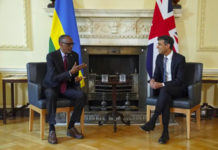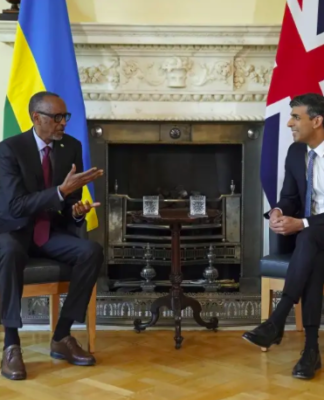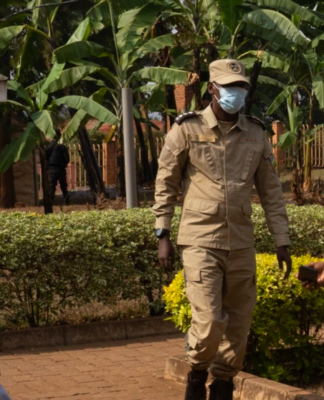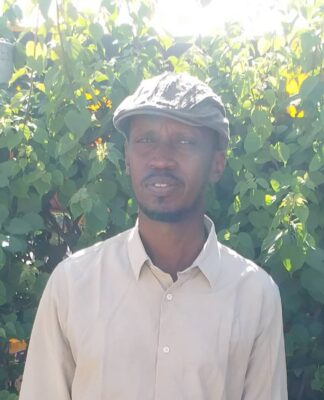By Shada Islam
Better late than never. After weeks of neglect, the global spotlight is finally on Covid-19’s devastating social and economic impact on the world’s most vulnerable. Statements of support, promises of help, and plans for quick aid and debt relief, albeit piecemeal, are welcome.
But yesterday’s policies won’t solve tomorrow’s problems.
The current focus on the immediate emergency is correct. But it must go hand in hand with preparations for even tougher days ahead.
In some developing countries, Covid-19 risks wiping out years of hard work and an impressive steady rise in incomes. With the disruption in global supply chains, trade is slowing. Remittances are declining. Tourism is a memory. A post-crisis recovery will take time, money and effort.
In the short-term, almost everywhere in Asia, Africa and Latin America, creaking health systems need to be shored up and urgently needed testing kits, ventilators and protective clothing for health workers, provided. As more and more developing countries go into lockdown, factories screech to a standstill and jobs disappear, cash transfers must be made quickly to the poorest to prevent famine and hunger.
Many governments are already increasing domestic spending to help the poor, requiring that the liquidity of financial systems is maintained to keep money flowing to households and small businesses.
There are demands – and promises – of debt relief. Ethiopia’s Prime Minister and Nobel Peace Prize laureate Abiy Ahmed wants an emergency package worth $150 bn for Africa to boost health spending, shore up foreign reserves and patch up social safety nets. If the virus is not defeated in Africa “it will only bounce back to the rest of the world”, he warns.
The IMF-World Bank meeting on 17 April will seek a coordinated international response to these and other demands. The European Commission is readying its own initiative for African countries.
This is welcome. But with the economic fall-out from Covid-19 expected to cause the loss of up to 25 million jobs – many in the developing world –by the end of 2020, it’s equally urgent to put in place policies to tackle an even grimmer future.
Rebooting the economies of most developing nations – even those described as middle-income – won’t be easy. Old-fashioned aid and trade policies will need a radical rethink. Tired conversations and out-dated, often transactional, interactions between rich and poor nations will have to be refreshed.
The European Union, with its expanding network of partners in developing countries can spearhead the transformation. But to do so, European institutions, national governments and policymakers will have to look beyond today’s challenges, short-term victories, petty rivalries and self-absorbed reflexes. Here are some compelling realities which must stay centre stage in upcoming EU reflections:
– The shift in Europe’s narratives on aid, development and especially on Africa must be accelerated. The EU’s recent Africa strategy with its focus on a “partnership of equals” is evidence of a changing policy mindset – at least in Brussels. For too many people, however, helping Africa is still about being charitable. Public support for stronger financial assistance, including debt forgiveness for Africa and other developing countries will only be forthcoming if European leaders demonstrate that our economic future hinges on the prosperity of others. And that includes through migration.
– Traditional aid policies will have to include a big financial effort to support the poorest people, often in the informal sector, who have now been made jobless. Providing ‘free money’ or basic income for those in poor countries – as well as in rich ones – will become imperative. As studies show, money given to people with no strings attached and no administrative hassle is usually well spent, decreases poverty, improves health and allows children from under-privileged families to perform better at school. The financial costs of such an initiative could be as high as around 10% of GDP. But extraordinary times demand extraordinary measures. As recommended by Joseph Stiglitz, full use can be made of the IMF’s Special Drawing Rights to help the neediest without impacting on government budgets.
– Health must become a key feature of EU strategic partnerships and cooperation agreements. Long after Covid-19 becomes history, pandemics and health emergencies will continue to challenge global health infrastructure, especially in developing countries. Investments in national health care capacity along with longer-term preparedness must remain at the top of the agenda. While defence expenditure is often high, spending on health is still depressingly low in many developing countries. EU ‘Health partnerships’ must ensure assistance to bring an end to governments’ chronic underfunding of health systems. Financing for the WHO, also woefully inadequate, must be increased to give it both financial and political heft.
– Reform of tax governance and of an already fragilised multilateral trading system must be accelerated. Governments can no longer keep stalling on decisions needed to combat illicit financial flows, tax evasion, money-laundering and corruption. Meanwhile, with dramatic supply and demand shocks in the world economy triggering major trade disruptions, including in services, long-delayed WTO reforms have become even more urgent. As European buyers cancel their orders, for instance, Asia’s textile exporters and workers, especially women, are being hardest hit. They will need financial help but also special ‘corona trade preferences’ through a revamp of the EU’s Generalised System of Preferences (GSP). Negotiations on free trade agreements, new and ongoing, must also adapt to the emergency.
– Europe’s current obsession with geopolitical competition must be replaced with an effort to work together across ideological barriers. The EU’s recent barbs against so-called ‘politics of generosity’, targeting China, Russia, Turkey and others may sound cool but are unworthy and unhelpful when all hands are needed on deck. The EU is more credible – and more in line with its values of solidarity – when it speaks of mutual support in tackling Covid-19, cooperation in developing a vaccine and an end to long-running conflicts.
The agenda is ambitious. In a world dominated by “my nation first” policies, there will certainly be resistance by many. But a pandemic that knows no borders requires global solutions, international cooperation and help-thy-neighbour policies.
It’s a simple matter of self-interest. Building a strong post-Covid-19 world requires changing yesterday’s policies to tackle tomorrow’s tough problems.
.
Shada Islam, is Director of Europe and Geopolitics at Friends of Europe, a Brussels-based think tank.





























































